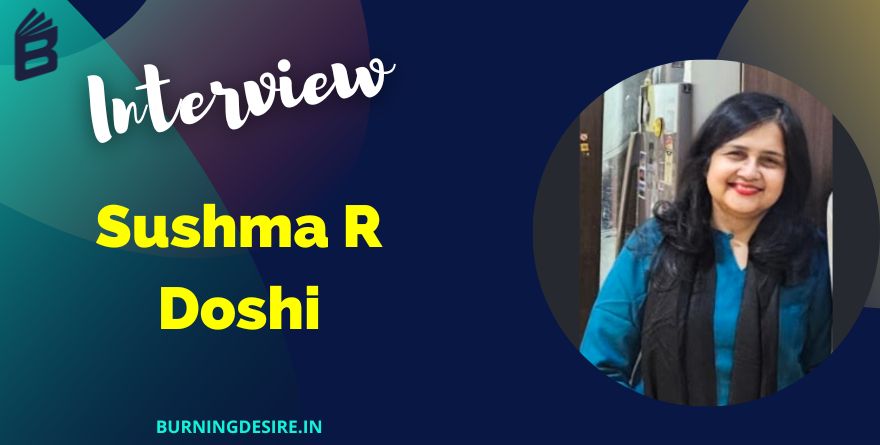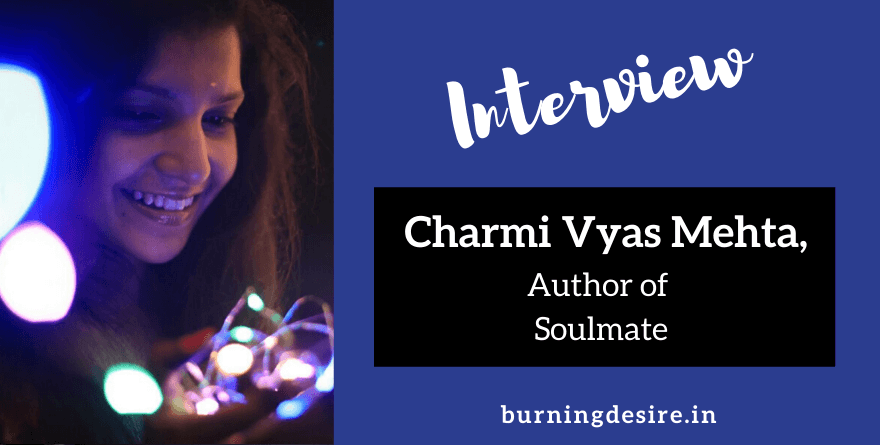Some stories come not from textbooks or technique, but from lived emotions and quiet observations of life. In this heartfelt interview with Sushma R Doshi, we meet a writer who found her creative voice during one of the most uncertain times in recent memory—the pandemic. What began as a form of personal catharsis soon evolved into a powerful medium of storytelling that now resonates with readers across the world.
Sushma writes fiction and poetry that blend simplicity with depth, and imagination with emotion. Her works, published in reputed journals internationally, often spotlight the subtle struggles and triumphs of everyday individuals—especially women who navigate silent challenges. Her short story Magic, inspired by a real-life memory, was nominated for the Pushcart Prize and continues to touch readers with its graceful narrative.
In this candid conversation, she talks about her writing journey, the inspiration behind her stories, her favorite authors, and her dream of one day publishing an anthology. If you’re someone who finds joy in sincere storytelling, this interview is sure to leave you inspired.
Interview With Sushma R Doshi
1. Let’s begin with a brief introduction of yours and your journey as a writer.
Sushma: My name is Sushma R Doshi. I completed my graduation in History from Loreto College, Kolkata. I went on to acquire a PhD in International Studies from Jawaharlal Nehru University, New Delhi. I forayed into writing fiction and poetry during the time of the Pandemic. It was a kind of catharsis initially.
2. When did you realize that writing fiction and poetry was your calling?
Sushma: When my first story got published, it gave me immense satisfaction. The ball started rolling, and every letter of acceptance that a journal finds your story or poem worthy of publication is motivating. When someone reads what I have written and enjoys it, I feel euphoric.
3. Who are some of your literary influences or favorite authors?
Sushma: R K Narayan and Ruskin Bond. Their evocative storytelling combined with their humour and wit makes them unforgettable.
4. Could you describe your writing process? Do you have specific routines or rituals?
Sushma: I don’t have any particular writing process. I write from the heart…when I feel like it. There may be days when I don’t write at all or days when I write continuously.
5. Your short story “Magic” was nominated for the Pushcart Prize. What inspired this story, and what does the nomination mean to you?
Sushma: “Magic” is the story of a wallflower who transforms when she dances. I was inspired by a girl I knew in school. The nomination for the Pushcart Prize really surprised me. I was honoured that they appreciated the story so much.
6. You’ve been published across diverse literary platforms internationally. How do you adapt your writing style to different audiences and journals?
Sushma: While writing for international journals I try to write universal stories. However, some journals do accept stories which are extremely Indian in flavour. My story “Same Pinch” which narrates the life of an Indian construction worker and her daughter was published by Everyday Fiction.
7. As someone who has extensively studied International Studies, how does your academic background influence the themes and subjects you explore in your fiction and poetry?
Sushma: Studying politics included, amongst other things, political theory, social, political and economic history and international relations. It has made me understand the functioning of human psychology in changing political and socio-economic structures. It has made me empathetic and critically analyse different perspectives. This is visible in my stories and poetry.
8. If you had to choose one of your works to represent your voice as a writer, which would it be and why?
Sushma: My story, “I’ve learnt to Dance”, published in Impspired magazine, is close to my heart. It narrates the struggle of a girl who can’t dance. One finally realises she is deaf and can’t hear the music. In the end starts to dance when it starts to rain. She becomes one with nature.
9. How do you see the role of literature in today’s rapidly changing world?
Sushma: Today, people don’t read as much as before. They are becoming insular. Literature is important in understanding diverse perspectives, social structures and the psyche of the people.
10. Are there particular social issues or themes that you feel compelled to explore through your writing?
Sushma: I would like to explore the problems faced, especially by marginalized women.
11. Can you share any upcoming projects or new stories that you’re currently working on?
Sushma: I am waiting for my stories in Kitaab in April and in Oratoria magazine in May.
12. What are your long-term aspirations or dreams as an author?
Sushma: I would one day like to publish an anthology of short stories.
Rapid-Fire Questions (Answer in One Line):
Q. Favorite book?
To Kill a Mockingbird by Harper Lee
Q. Morning writer or night owl?
Night Owl.
Q. Coffee or tea while writing?
Chocolates
Q. Favorite place to write?
By a window


